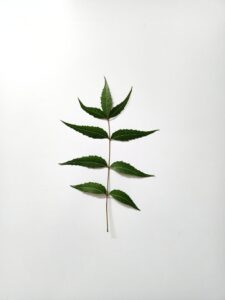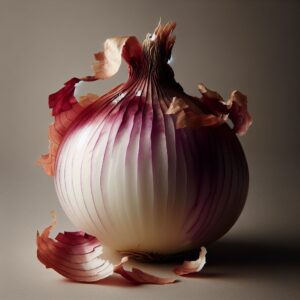
Discover the Power of Spirulina for Postpartum Hair Growth
As a new mom, you’re embarking on a journey filled with joy, but it can also bring unexpected changes, like postpartum hair loss. It’s a common challenge, but there’s a natural ally that can help you on the path to hair recovery: Spirulina. This superfood, especially the high-quality strains from Nutrex Hawaii, is packed with nutrients that can support your hair’s comeback.
Why Your Hair Needs Extra Support After Pregnancy
After giving birth, your body goes through a whirlwind of hormonal shifts. These changes can take a toll on your hair, leading to thinning or shedding. It’s not just about looks; your hair’s health is intertwined with your overall well-being. That’s why providing your body with the right nutrients is crucial for not only restoring your hair but also boosting your confidence.
-
Hormonal fluctuations can cause hair follicles to enter the resting phase prematurely.
-
Nutritional gaps post-pregnancy can impact hair strength and growth.
-
Stress from new motherhood may contribute to hair loss.
-
Replenishing your body with essential nutrients helps promote hair regrowth.
-
Supporting hair health postpartum can improve your overall confidence and wellness.
The Science Behind Spirulina’s Hair-Restoring Nutrients
Spirulina, a blue-green algae, is a nutritional powerhouse. It’s brimming with vitamins, minerals, and antioxidants that your body craves, especially after childbirth. The science is clear: the components of spirulina can directly influence the health of your hair. From protein to iron, and vitamins A and E, spirulina provides a symphony of nutrients that work in harmony to rejuvenate your locks.
Protein is the building block of hair, and spirulina is rich in it. Iron helps combat anemia, a common postpartum condition that can lead to hair loss. Vitamins A and E are antioxidants that protect your hair from damage and support scalp health. The zinc in spirulina can balance your hormones, potentially reducing hair shedding caused by hormonal changes.
But it’s not just about what’s inside spirulina. It’s about how these nutrients are delivered to your body. Nutrex Hawaii’s spirulina is grown in pristine conditions, ensuring that the nutrients are preserved and readily available for your body to use. This means you get the full benefit of what spirulina has to offer for your hair’s recovery and overall health.
Nourishing Your Scalp with Nutrex Hawaii Spirulina
It’s not enough to just consume nutrients; they need to reach your scalp to work their magic. Nutrex Hawaii Spirulina is designed to be easily absorbed by your body, ensuring that these vital nutrients make their way to your scalp. A well-nourished scalp is the foundation of healthy hair growth. By incorporating spirulina into your diet, you’re giving your hair the best chance to thrive postpartum.

When it comes to hair care, consistency is key. By making Nutrex Hawaii Spirulina a regular part of your routine, you’re continuously feeding your hair follicles with the nutrients they need. Think of it as a daily dose of love for your hair, helping to strengthen each strand from root to tip.
And let’s not forget about the ease of use. Nutrex Hawaii Spirulina comes in various forms, including powder and tablets, making it a convenient addition to your daily diet. Whether you’re blending it into a smoothie or taking it as a supplement, you’re on your way to healthier, more vibrant hair.
The Role of Protein in Hair Regeneration
Did you know that your hair is primarily made up of protein? That’s right, and that’s why protein is so essential for hair regeneration. Spirulina is about 60% protein, which is higher than most plant-based sources. This means it’s an excellent way for you to get the protein your hair desperately needs to repair and grow.
But it’s not just any protein; it’s complete with all the essential amino acids your body can’t produce on its own. These amino acids are the building blocks your hair uses to create keratin, the protein that makes up your hair. By boosting your protein intake with spirulina, you’re directly supporting the structure and integrity of your hair.
-
Keratin production is vital for strong, healthy hair.
-
Spirulina provides all essential amino acids for optimal hair growth.
-
High protein content in spirulina helps replenish hair postpartum.
-
Regular intake of spirulina can lead to thicker, fuller hair over time.
-
Protein from spirulina is easily digestible and bioavailable.
Vitamins and Minerals in Spirulina That Benefit Hair
Spirulina is not just rich in protein; it’s also a treasure trove of vitamins and minerals that are essential for healthy hair. It contains Vitamin B12, which is vital for energy and the creation of red blood cells, carrying oxygen to your scalp and hair follicles. Iron in spirulina helps prevent anemia, a common issue postpartum that can affect hair health. The presence of magnesium can help with stress reduction, which is often a contributing factor to hair loss.
-
Vitamin A promotes a healthy scalp and regulates sebum production.
-
Biotin, or Vitamin B7, is renowned for strengthening hair and improving growth.
-
Vitamin E is an antioxidant that protects your hair from environmental stressors.
-
Zinc plays a role in hair tissue growth and repair.
-
Calcium, potassium, and selenium support overall hair health and maintenance.
-
Gamma-linolenic acid, an essential fatty acid in spirulina, encourages hair growth.
Incorporating Spirulina into Your Postpartum Diet
Adding spirulina to your postpartum diet is a smart move for hair recovery and overall health. It’s incredibly versatile and can be included in many different types of meals. Start with small amounts, about a teaspoon per day, and gradually increase as your body adjusts. Remember, it’s important to listen to your body and consult with a healthcare provider before making any significant changes to your diet, especially during the postpartum period.
Stay hydrated and maintain a balanced diet alongside spirulina supplementation. It’s not a miracle cure, but when combined with a variety of nutrient-rich foods, spirulina can significantly contribute to your hair’s revival and your body’s nourishment after childbirth.
Easy and Delicious Spirulina-Infused Recipes
Integrating spirulina into your meals can be both easy and delicious. Here are a few simple recipes to get you started:
-
Green Morning Smoothie: Blend a banana, a handful of spinach, a teaspoon of spirulina powder, almond milk, and a touch of honey for a sweet, nutritious start to your day.
-
Protein-Packed Yogurt Bowl: Stir spirulina powder into Greek yogurt, top with fresh berries, granola, and a drizzle of agave for a quick and filling snack.
-
Energizing Spirulina Balls: Mix oats, peanut butter, spirulina powder, chia seeds, and a bit of maple syrup. Roll into balls and refrigerate for a healthy on-the-go treat.
Creating a Balanced Meal Plan for Hair Recovery
A balanced meal plan is crucial for postpartum hair recovery. Along with spirulina, ensure you’re getting plenty of lean proteins, omega-3 fatty acids, and foods rich in iron and vitamin C. These nutrients help with the absorption of iron, a key mineral for hair growth. Incorporate a variety of fruits, vegetables, whole grains, and healthy fats to support your body’s healing and your hair’s growth.
Plan your meals to include a rainbow of nutrients. For example, a lunch of salmon, sweet potatoes, and a green salad provides a perfect mix of omega-3s, beta-carotene, and leafy greens rich in folate and iron. Snack on nuts and seeds, which are great sources of vitamin E and zinc, both beneficial for hair health.
Real Results: Spirulina’s Success Stories
Many new moms have turned to spirulina as part of their postpartum recovery and have seen remarkable improvements in their hair health. From thicker, fuller hair to a reduction in shedding, the testimonials speak volumes about spirulina’s impact.
One mom shared, “After three months of adding spirulina to my smoothies, I noticed my hair was no longer falling out in clumps. It’s now shinier and more manageable than ever!” Another expressed, “My postpartum hair was brittle and lifeless, but spirulina has brought it back to life. I’m finally feeling like myself again.”
-
Reports of decreased hair shedding and increased hair thickness.
-
Improved hair texture and shine after consistent spirulina supplementation.
-
New hair growth observed around the hairline and parting areas.
-
Enhanced overall well-being and energy levels, contributing to hair health.
While individual results may vary, these stories highlight the potential of spirulina to aid in postpartum hair recovery. It’s a natural, nourishing option that, when combined with a healthy lifestyle, can make a real difference in your journey to regaining strong and vibrant hair.
Testimonials from New Moms
The journey to hair recovery is deeply personal, but shared experiences can provide hope and inspiration. Consider Sarah’s story: “Six months postpartum, my hair was thinning so much I was scared to brush it. After incorporating spirulina into my diet, I’ve seen baby hairs sprouting and less hair in my brush.” Or Emily, who says, “Spirulina has been a game-changer. My hairdresser noticed new growth and my hair feels stronger.”
-
“Spirulina helped reduce my hair shedding significantly.” – Jenna
-
“I’m finally seeing the volume in my hair return, thanks to spirulina.” – Maria
-
“My confidence is back! My hair is growing faster and healthier.” – Liz
-
“I was skeptical, but the difference in my hair’s thickness is noticeable.” – Anne
-
“Postpartum hair loss hit me hard, but spirulina has made a real impact.” – Kim
What to Expect: Timelines for Hair Growth Resurgence
Understanding the timeline for hair regrowth can set realistic expectations. Typically, you may start to see improvements in hair texture and reduced shedding within the first month of consistent spirulina intake. By the three-month mark, many report noticeable hair growth, especially around the hairline. For full recovery, it can take six months to a year, depending on individual health factors and consistency with spirulina supplementation.
-
1 month: Decrease in hair shedding and improvement in hair texture.
-
3 months: Visible new hair growth and stronger hair strands.
-
6 months: Continued hair thickening and health.
-
1 year: Potential for full recovery of hair volume and strength.
Professional Endorsements and Health Considerations
When it comes to your health, especially postpartum, professional endorsements matter. Health experts, including nutritionists and trichologists, recognize the benefits of spirulina for hair health. They point to its rich nutrient profile that can support hair growth and overall wellness during the postpartum period.
Expert Opinions on Spirulina’s Efficacy for Hair Loss
Experts in the field of hair health have praised spirulina for its nutrient density and potential to aid in hair regrowth. “Spirulina contains essential amino acids, vitamins, and minerals that are vital for hair health,” says a renowned trichologist. “Its high protein content, in particular, can support the regeneration of hair after the stress of pregnancy and childbirth.”
-
Trichologists endorse spirulina for its complete amino acid profile.
-
Nutritionists recommend spirulina for its iron content, which can help combat postpartum anemia-related hair loss.
-
Healthcare providers suggest spirulina as a supplement for its overall benefits to postpartum recovery.
Precautions for Breastfeeding Mothers and Allergy Awareness
While spirulina is a natural supplement, breastfeeding mothers should always consult with their healthcare provider before adding it to their diet. It’s also important to be aware of potential allergies. Spirulina is derived from algae, so those with seafood or iodine allergies should exercise caution. Always source your spirulina from reputable suppliers like Nutrex Hawaii to ensure purity and avoid contaminants.
-
Consult with a healthcare provider before starting any new supplement.
-
Be aware of potential allergies related to algae and seafood.
-
Choose high-quality spirulina from trusted sources to ensure safety and efficacy.
-
Monitor for any adverse reactions when starting spirulina, especially when breastfeeding.
FAQ
How Long After Starting Spirulina Will I See Hair Growth?
Every mom’s body is unique, and so is the response time to any supplement, including spirulina. Generally, you might start to notice changes in hair texture and shedding within a few weeks. As for hair growth, it’s common to see new sprouts within 2 to 3 months. Remember, patience is key, and consistent intake of spirulina, along with a balanced diet, will yield the best results.
-
Initial changes in hair texture can be seen in as little as a few weeks.
-
New hair growth may be noticeable within 2 to 3 months.
-
Consistency with spirulina intake is crucial for optimal results.
-
Full benefits and hair recovery may take up to 6 months or more.
Is Spirulina Safe for All Postpartum Women?
Spirulina is generally safe for most individuals, but postpartum women should take extra care. If you’re breastfeeding, it’s essential to consult with your healthcare provider before adding spirulina to your diet. While spirulina is a natural product, you want to ensure it’s safe for you and your baby, considering any specific health conditions or medications you may be taking.
-
Consult with a healthcare provider before starting spirulina, especially if breastfeeding.
-
Consider any personal health conditions or medications that might interact with spirulina.
-
Choose high-quality spirulina from reputable sources to avoid contaminants.
Can Spirulina Replace Prenatal Vitamins for Hair Health?
While spirulina is nutrient-rich, it shouldn’t replace prenatal vitamins, especially if you’re breastfeeding. Prenatal vitamins are specifically formulated to meet the unique needs of pregnant and postpartum women. Spirulina can be an excellent addition to your diet for extra support, but it’s best used in conjunction with, rather than as a replacement for, your prenatal vitamins.
-
Prenatal vitamins are tailored for the nutritional needs of postpartum women.
-
Spirulina is a supplement that can provide additional hair health benefits.
-
Always discuss with a healthcare provider before making changes to your supplement regimen.
What Are the Potential Side Effects of Spirulina?
Most people tolerate spirulina well, but like any supplement, it can have side effects. Some individuals may experience digestive discomfort, such as bloating or constipation, especially when starting spirulina or taking high doses. Allergic reactions are rare but possible, particularly for those with allergies to seafood or iodine. To minimize risks, start with a small dose and gradually increase it to the recommended amount.
-
Common side effects may include digestive discomfort or bloating.
-
Allergic reactions are possible but rare; watch for signs if you have seafood or iodine allergies.
-
Begin with a small dose of spirulina and increase gradually.
-
If you experience any adverse effects, discontinue use and consult a healthcare provider.
How Do I Choose a High-Quality Spirulina Supplement?
Selecting the right spirulina supplement is crucial to ensure you’re getting the benefits without any harmful additives. Start by looking for brands that are transparent about their sourcing and production processes. Nutrex Hawaii, for example, grows their spirulina in controlled, clean environments, which minimizes the risk of contamination. Organic certification and third-party testing for purity are also indicators of a high-quality product.
-
Look for organic certification to ensure the product is free from synthetic fertilizers and pesticides.
-
Choose spirulina that has been third-party tested for heavy metals and other contaminants.
-
Check for transparency in sourcing and manufacturing processes.
-
Read reviews and testimonials from other customers to gauge the product’s efficacy.
-
Ensure the product is free from fillers, binders, and artificial additives.
-
Consider the form of spirulina that best fits your lifestyle, whether it be powder, tablets, or capsules.
Key Takeaways
As we wrap up this comprehensive guide to using Nutrex Hawaii Spirulina for postpartum hair recovery, let’s recap the main points to remember:
-
Nutrient-Rich Superfood: Spirulina is packed with essential nutrients like protein, vitamins, and minerals that support hair health.
-
Postpartum Hair Loss: Hormonal changes and nutritional needs postpartum can lead to hair loss, but spirulina can help replenish these vital nutrients.
-
Easy to Incorporate: Spirulina is versatile and can be easily added to your daily diet through smoothies, snacks, and meals.
-
Patience and Consistency: While spirulina can support hair growth, it’s important to maintain consistent intake and have realistic expectations about the timeline for regrowth.
-
Quality Matters: Choosing a high-quality spirulina supplement, like those offered by Nutrex Hawaii, ensures you’re getting the best support for your hair recovery journey.
In conclusion, spirulina stands out as a natural and effective way to support your hair’s health and recovery after pregnancy. By understanding the benefits, incorporating it into your diet, and choosing a high-quality supplement, you’re taking positive steps towards regaining not just the vitality of your hair, but also your overall confidence as a new mom. Remember, every small step can lead to significant changes, and with spirulina on your side, you’re well on your way to luscious, healthy locks and a happier you.


